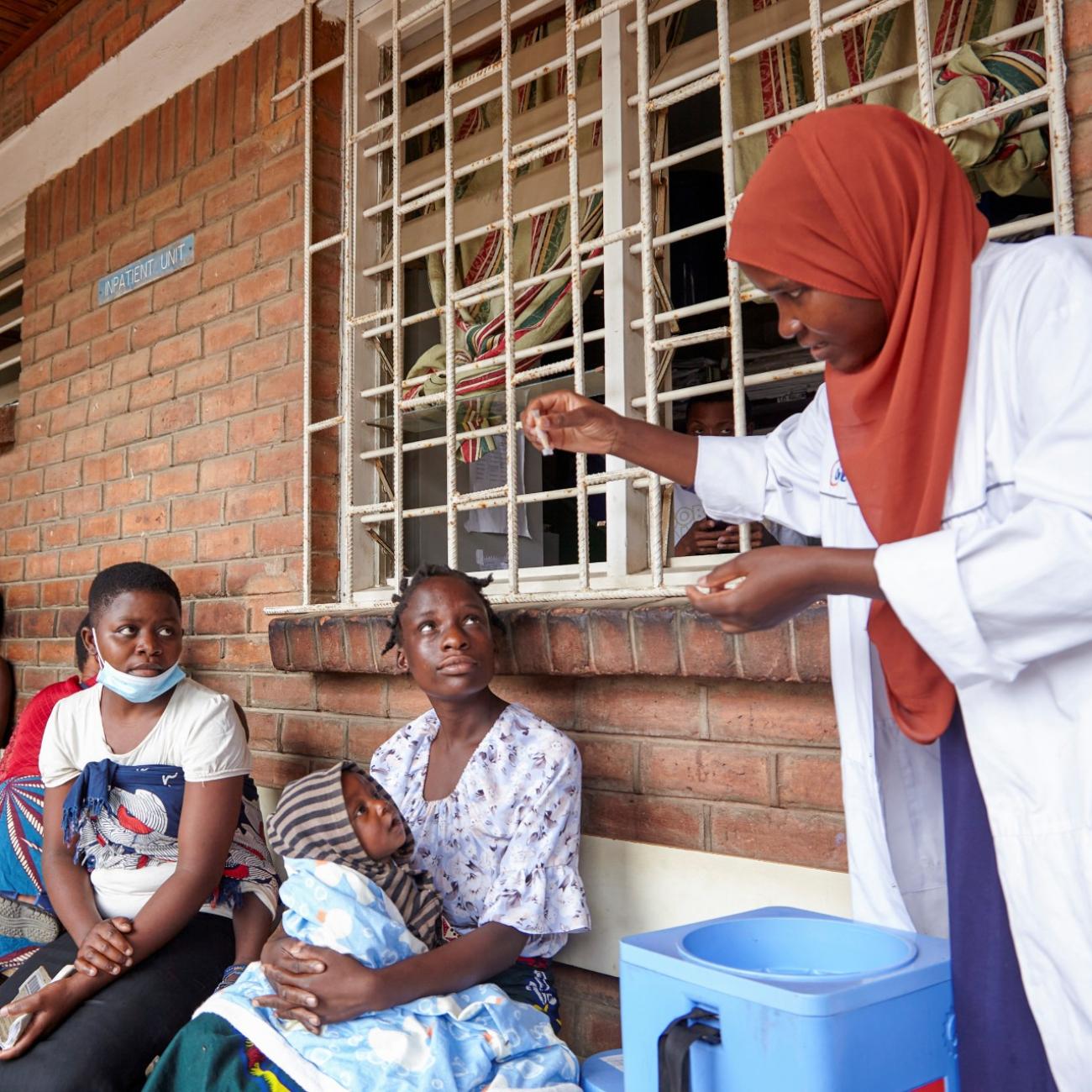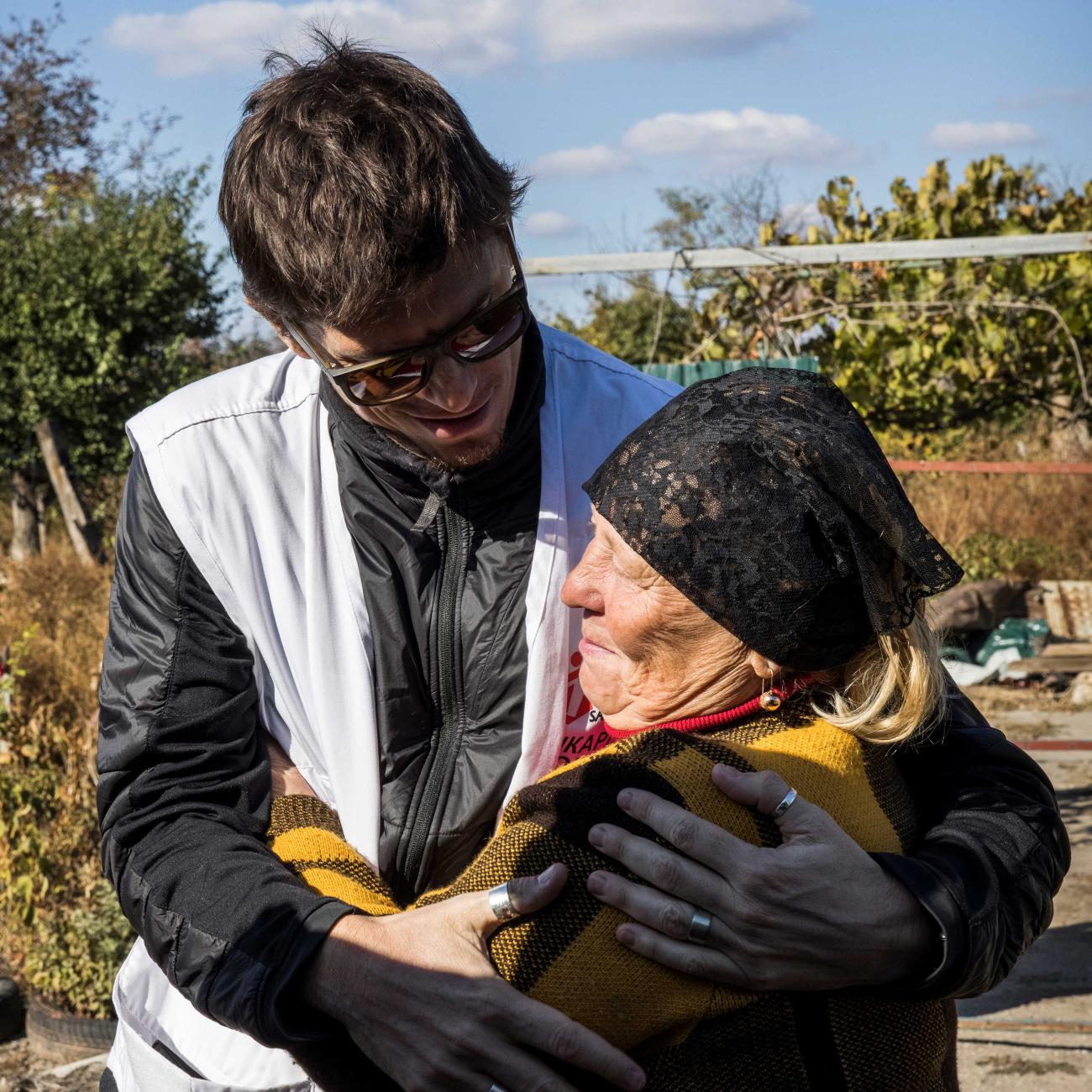The importance of effectively engaging Africa's health sector in outbreak responses has become increasingly evident since the COVID-19 pandemic. During this time, international organizations discovered that their efforts were best complemented by collaboration with local governments and community leaders. Now, as the global health community reflects on the lessons learned from the pandemic, it should also consider what it can learn from Africa to future-proof global health.
Swiftness and Greater Regional Coordination
Before COVID-19, Africa's public health sector often found that its work was overshadowed by narratives and solutions from Western countries, but "there is so much for the whole world to learn from Africa," said Raji Tajudeen, head of Public Health Institutes and Research at the Africa Centres for Disease Control and Prevention (Africa CDC), during the International Conference on Public Health in Africa, in November.
While emphasizing the effectiveness of African initiatives, particularly in response to the COVID-19 pandemic, he called for greater recognition, consideration, and integration of these efforts on a global scale.
He pointed to the Africa CDC's swift action, establishment of a pooled procurement platform, and efficient mobilization of resources as examples of effective regional mechanisms.
Strategic Alliances and Localization Prioritization
One of the initiatives that Tajudeen highlighted was the Saving Lives and Livelihoods Initiative, a partnership between the Africa CDC and the Mastercard Foundation. He told me he is now inviting other public health sector players, especially the main players in the Geneva global health ecosystem, to study and adopt that model, emphasizing its potential for global replication.
"Our partnership really exemplifies what I describe as a respected, action-oriented partnership," Tajudeen said. He challenged the prevailing narrative regarding Africa's contributions to global health, calling on all stakeholders to join Africa to "implement these very robust, comprehensive strategic plans" and to embrace Africa's role as a leader in shaping the future of global health.
Beyond guiding prospective partners on how to engage with Africa, the agency's leadership also has insights for the rest of the world on how to better achieve set global health goals, including forming strategic alliances. "At the heart of Africa CDC's success lies its ability to identify and foster strategic partnerships," said Ahmed Ogwell Ouma, acting deputy director general of the Africa CDC. He emphasized that Africa's response to the COVID pandemic was not a solitary endeavor, but a collaborative effort involving a myriad of stakeholders. Through strategic alliances, he said, the Africa CDC harnessed resources, expertise, and support critical for mounting an effective response.
Africa's experience is also a major lesson for the global health landscape on the need to prioritize localization in interventions
Ouma added that Africa's experience is also a major lesson for the global health landscape on the need to prioritize localization in interventions rather than attempt to "plug-and-play" foreign solutions and approaches." One of the main takeaways from Africa's experience is the importance of local capacity and prioritization." According to Ouma, the Africa CDC and its partners have empowered local communities and prioritized interventions based on specific needs. Those actions allowed Africa to optimize resource allocation and ensure that interventions were effective in addressing the most pressing health concerns.
He also stressed the importance of ensuring that partnerships are based on mutual strengths and objectives.
"Our collaborations exemplify how shared goals and complementary capabilities can drive impactful outcomes. . . . By engaging in partnerships that leverage each partner's strengths, Africa demonstrated the power of collaborative approaches in tackling complex health challenges."
Multitasking Capabilities
Even though COVID-19 is no longer a public health emergency of international concern, several other outbreaks and incidences of global health importance are. The ease of spread of one disease from one part of the world to another has necessitated the need for a more robust approach toward preparations and responses to multiple outbreaks concurrently, one of the major strengths of Africa's public health sector.
"As the world grapples with ongoing health crises and prepares for future pandemics, the lessons from Africa's experience are more relevant than ever," Ouma asserted. "These insights offer a roadmap for global health organizations, emphasizing the importance of local capacity, prioritization, and strategic partnerships in achieving effective responses."
"By turning to Africa for guidance on how to prepare for, respond to, and conduct surveillance for outbreak-prone diseases, other continents could be better positioned to curb the next disease outbreak," he argued. "Together, we can overcome even the most daunting of health crises."
Insights on How to Engage in Africa
In addition to learning from Africa, international organizations can get involved in public health on the continent. According to Ouma, thanks to the agency's collaboration with the Mastercard Foundation, several other partners that were previously not involved in public health are now supporting health initiatives in Africa. Both parties agreed that their partnership is now serving as a valuable case study, offering insights into best practices for engagement in Africa's health sector.
According to Julie Gichuru, chief public affairs and communications officer at the Mastercard Foundation, "African and local partnerships are critical." Gichuru emphasized the critical role of African and local organizations in driving transformative change. By leveraging their understanding of local ecosystems, cultural nuances, and community needs, these partners can deliver interventions with speed, scale, and effectiveness.
She also emphasized the need for partnering organizations to prioritize listening and responding to community needs. She argued that central to effective engagement in Africa's health sector is listening to and responding to community needs. Gichuru highlighted the importance of understanding the aspirations and priorities of the communities being served rather than imposing external agendas.
"We try to ask ourselves, what do they need, and what do they want," said Gichuru. By taking a collaborative approach and actively soliciting feedback from stakeholders, she said organizations can tailor their interventions to address the most pressing health challenges facing African communities.
Capacity-Building, Flexibility, and Adaptability
Instead of rolling out predetermined interventions, Gichuru noted that capacity-building yields better outcomes. Gichuru emphasized the need to "continue to support the capacity-building of these partners," particularly in areas such as data management, diagnostics, and workforce development. By investing in the capacity of local actors, international organizations can help build sustainable health systems that are resilient in the face of future challenges.
She also stressed the need for Africa-aimed public health interventions to be flexible and adaptable. "This is not about ticking boxes," she said. Flexibility enables organizations to remain responsive to emerging challenges, seize new opportunities, and maximize their impact in Africa's dynamic health landscape.
Flexibility enables organizations to remain responsive to emerging challenges, seize new opportunities, and maximize their impact
"By embracing flexibility, listening to stakeholders, and empowering local actors, organizations can contribute to the development of sustainable health systems that improve the lives of millions of Africans," Gichuru explained. In hindsight, the tips on how to more effectively engage in Africa’s health landscape are also relevant for initiatives aiming to be successful in any part of the world. Effective engagement anywhere should require a holistic and collaborative approach that prioritizes local partnerships, community needs, and capacity-building.
Although Africa continues to rely on international support, it seems to now have a winning strategy that exemplifies these principles. It therefore offers valuable insights and lessons for organizations seeking to have a meaningful impact on health outcomes across and beyond the continent.






